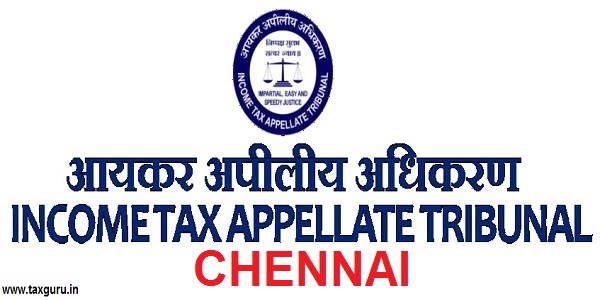Why Actuarial Services of A Qualified Actuary is needed for computation of Gratuity Liability by Private Schools & Private Universities at Financial year end ?
This article is in continuation with my earlier article “Payment of Gratuity Act is fully applicable to Teachers in Schools“. This article is attempt to give the briefing about “Need of Actuarial Services of A Qualified Actuary for computation of Gratuity Liability for Accounting Provisioning in Financial Statements of Private Schools & Private Universities with 10 or more Employees.”
This is my 2nd writing in the series of write-ups for issues relating to Gratuity Benefits payable to employees of Schools. Although “The Payment of Gratuity Act” (The Act) came into being in 1972, provision of this benefit to Teachers remained controversial and the controversy is finally set aside with the Judgment of Hon’ble Supreme Court on March 07, 2019 which provided full coverage under The Act to Teachers.
Majority of employees hired by Schools fall in the category of Teachers and therefore including them (Teachers) in the fold of the Act has made liability under this benefit far more burdensome than it was when inclusion of Teachers in the fold of the Act was controversial. Therefore, Accounting for Gratuity Benefits by Schools has become very important. We will focus on this topic of Accounting for Gratuity Benefit by Schools in this write-up. But before we take up this issue, we will have a look up at 2 documents which are very relevant. These 2 documents are :-
(i) Guidance Note on Accounting by Schools
(ii) Accounting Standard (AS) 15 (Revised 2005) — Employee Benefits
We will, whilst introducing these documents, restrict ourselves to issues related to Gratuity Benefits only. The readers may refer to following web-links if interested in full details of the documents :-
(i) Guidance Note on Accounting by Schools – https://resource.cdn.icai.org/23627research5.pdf
(ii) Accounting Standard (AS) 15 (Revised 2005) — Employee Benefits – https://resource.cdn.icai.org/257accounting_standards_as15new.pdf
Guidance Note on Accounting by Schools
Research Committee of the Institute of Chartered Accountants of India formulated “Guidance Note on Accounting by Schools” which was issued in year 2005. This note is based on Sound Accounting Principles. Para no. 60 of this Guidance Note recommends that the Principles laid down in Accounting Standard (AS) 15 (Revised 2005) should be followed for Retirement Benefits (Please note that Gratuity Benefit is a Retirement Benefit). In Sub-Para (iii) of Para 60 of this note, it is explained that Gratuity is a Defined Benefit & that charge to the income and expenditure account for a year should be made through a provision for the accruing liability. The accruing liability should be calculated according to ACTUARIAL VALUATION. We produce Sub – Para 60 (iii) of the Guidance Note here in below for consideration of the reader :-
“(iii) A defined benefit scheme is a scheme under which amounts to be paid as retirement benefits are determined usually by reference to employee’s earnings and/or years of service. Examples of defined benefit schemes are pension and gratuity. Defined benefit schemes should be accounted for as follows:
(a) An appropriate charge to the income and expenditure account for a year should be made through a provision for the accruing liability. The accruing liability should be calculated according to ACTUARIAL VALUATION. However, if a school employs only a few persons, say less than twenty, it may calculate the accrued liability by reference to any other rational method, e.g., a method based on the assumption that such benefits are payable to all employees at the end of the accounting year.
(b) ACTUARIAL VALUATIONS should normally be conducted at least once in every three years. Where the actuarial valuations are not conducted annually, the actuary’s report should specify the amounts to be charged to the income and expenditure account of each year during the inter-valuation period.
(c) In case the liability for retirement benefits is funded through a scheme administered by an insurer (e.g., Life Insurance Corporation), AN ACTUARIAL CERTIFICATE or a confirmation from the insurer should be obtained that the contribution payable to the insurer is the appropriate accrual of the liability for the year. The contribution payable should be charged to the income and expenditure account for the year.“
Accounting Standard (AS) 15 (Revised 2005)- Employee Benefits
Accounting Standard (AS) 15 (Revised 2005) – Employee Benefits – (herein after refer to as The Standard) is issued by the Institute of Chartered Accountants of India. The Standard deals with the Accounting for Employee Benefits.
The Standard is covered in a large number of pages. Interested reader may refer to The Standard on the web-link already mentioned in this write-up. We will restrict ourselves to Accounting for Gratuity Benefit only. Whilst giving major points of The Standard related to our topic, we confess that the description is not exhaustive. The major points are :
Compliance of The Standard
In order to comply with the objective of The Standard in the matter of Accounting for Gratuity Benefits, a School is required to recognize :-
(a) a liability when an employee has provided service to school in exchange for gratuity benefits to be paid in the future; and
(b) an expense when the school consumes the economic benefit arising from service provided by an employee in exchange for gratuity benefits.
When the Gratuity Benefit is Payable
Gratuity is payable to an employee on exit from service in following events :-
(a) on his superannuation, or
(b) on his retirement or resignation,
(c) on his death or disablement due to accident or disease:
Provided that the completion of continuous service of five years shall not be necessary where the termination of the employment of any employee is due to death or disablement.
Category of Gratuity Benefit
Gratuity Benefit is a Post Employment Benefit in the category of Defined Benefit
A brief description of Defined Benefit (All this applies to Gratuity Benefits)
A Defined Benefit is influenced by many variables, such as final salary, employee turnover and mortality. Ultimate cost of the benefit is uncertain and this uncertainty persists over a long period of time. In order to measure the cost of the benefit & related obligations, it is necessary to :
(a) apply an actuarial valuation method
(b) attribute benefit to periods of service and
(c) make actuarial assumptions
Suggested Actuarial Valuation Method
The Standard has suggested Projected Unit Credit Method (PUC) to evaluate the cost of the Gratuity Benefit.
The Projected Unit Credit Method considers each period of service as giving rise to an additional unit of benefit entitlement and measures each unit separately to build up the final obligation.
Steps for Accounting of Gratuity Benefits
(a) using actuarial techniques to make a reliable estimate of the amount of Gratuity Benefit that the employee has earned in return for his service in the current and prior periods. This requires the School to determine how much benefit is attributable to the current and prior periods and to make estimates (actuarial assumptions) about demographic variables (such as employee turnover and mortality) and financial variables (such as future increases in salaries) that will influence the cost of the benefit.
(b) discounting that benefit using the Projected Unit Credit Method in order to determine the present value of the defined benefit obligation and the current service cost.
(c) determining the fair value of any plan assets (If the liability is funded).
(d) determining the total amount of actuarial gains and losses.
(e) where a plan has been introduced or changed, determining the resulting past service cost.
(f) where a plan has been curtailed or settled, determining the resulting gain or loss.
Auditor not to render Actuarial Services
According to Section 144 of the Companies Act 2013 an Auditor is not to render Actuarial services. Full version of the Section 144 is –
“144. Auditor not to render certain services.—An auditor appointed under this Act shall provide to the company only such other services as are approved by the Board of Directors or the audit committee, as the case may be, but which shall not include any of the following services (whether such services are rendered directly or indirectly to the company), or its holding company or subsidiary company, namely:—
(a) accounting and book keeping services;
(b) internal audit;
(c) design and implementation of any financial information system;
(d) actuarial services;
(e) investment advisory services;
(f) investment banking services
(g) rendering of outsourced financial services;
(h) management services; and
(i) any other kind of services as may be prescribed:“
In case of any query of requirement, you may call me at 9211637063, our email me your query or requirement at tikaramchaudhary@gmail.com




























